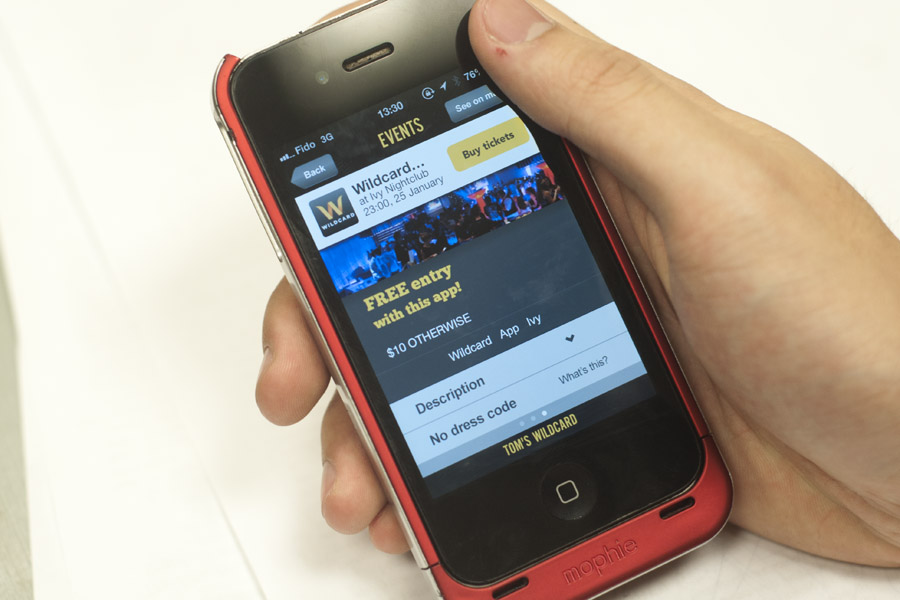McGill Tribune: What exactly is Wildcard?
Tom Zheng: Wildcard is a membership platform [that works as] an app and a card, and with it you are able to receive benefits at our partner clubs, restaurants, and bars. So, for example, you don’t pay cover, you get complementary drinks and appetizers, and you also claim rewards points every time you use it.
MT: How did the idea for Wildcard come about? Who was involved from the beginning, and who has gotten involved over the course of the process?
TZ: Three years ago a good friend of mine named Adam Hirsch—who is now in Malaysia—[came up with the] concept of a card that gets you into clubs. Last summer, my business partner, Randeep Singh—a third year materials engineering student—and I came together [to expand the business]. Nightlife is not just about clubbing, it can involve eating out, it can involve going to bars, even watching movies for that matter. So we wanted to create a platform for nightlife. We don’t want to concentrate on one specific niche. We want to really have something that everybody can use for whatever purpose they [want].
MT: What kind of learning curve have you faced since you first took over the company?
TZ: People think you tell [developers] what to do, they make it. Boom, done. But it’s a constant form of management that we learned how to do from scratch. Wildcard is different than a student club, we have to run it like a corporation. The process of turning this from a glorified student project into a legitimate corporation was by far, the hardest thing we had to do.
MT: How do you find the dynamic of working with people who have been at it, so much longer than you have?
TZ: I think the important thing is to listen and learn. We can only see so far; we see something with a great potential, but we don’t know how to get there. How do you get more users, how do you set meetings, how do you have a structured way in which you attack a problem? It took us a while to adjust to that, as well as [developing] a very strong sense of self-discipline; because both Randeep and I are still full time students, and I’m VP Academic for the AUS. You have to be focused on what you do—that was the hardest part, and we still have to work on that every day.
MT: I know that you were supposed to launch the app in mid- October, but the official event was held on Friday, January 25th. How has the timing been over the past year or so, in terms of expansion?
TZ: With something like this, you always want to reach your deadline, but things constantly come up. This entire product … was pretty much made by two students from Waterloo. You talk to them, and they build something, and that process kept going and going. So it took us a while, because both Randeep and I are perfectionists. It was very, very hard from September to December— the going back and forth. And because we’re a legally registered corporation….we have investors, we have people who we need to be responsible to, so [there] was a lot of pressure.
MT: So did the two Waterloo students get it done in the end, or did you end up having to switch to other developers?
TZ: They got it done. That was a relief, because literally an hour before the launch event, we were still working on it. With something like tech, it’s not like you draw a picture and you’re done; you make something, and you test it; something goes wrong; you fix it; something else goes wrong. And with any software, the front end is what you see, and the back end is how it operates…
MT: Do you have any other plans to expand in the future?
TZ: Definitely. At this point we’re still proving the idea in Montreal. There are some adjustments we want to make in terms of user interaction. Once we have something set, then we plan to go to every single major city in Canada. We’re already in talks with a company in Portugal who are interested in licensing the idea, and franchising the system. Because not only are we a front end product, but we have a back end system of analytics that we are able to implement with other companies.
MT: What do you hope to see happening with Wildcard in five years?
TZ: It will be in every major city in North America. The norm [for nightlife]. Because the concept is universal, we want to make it universal.








